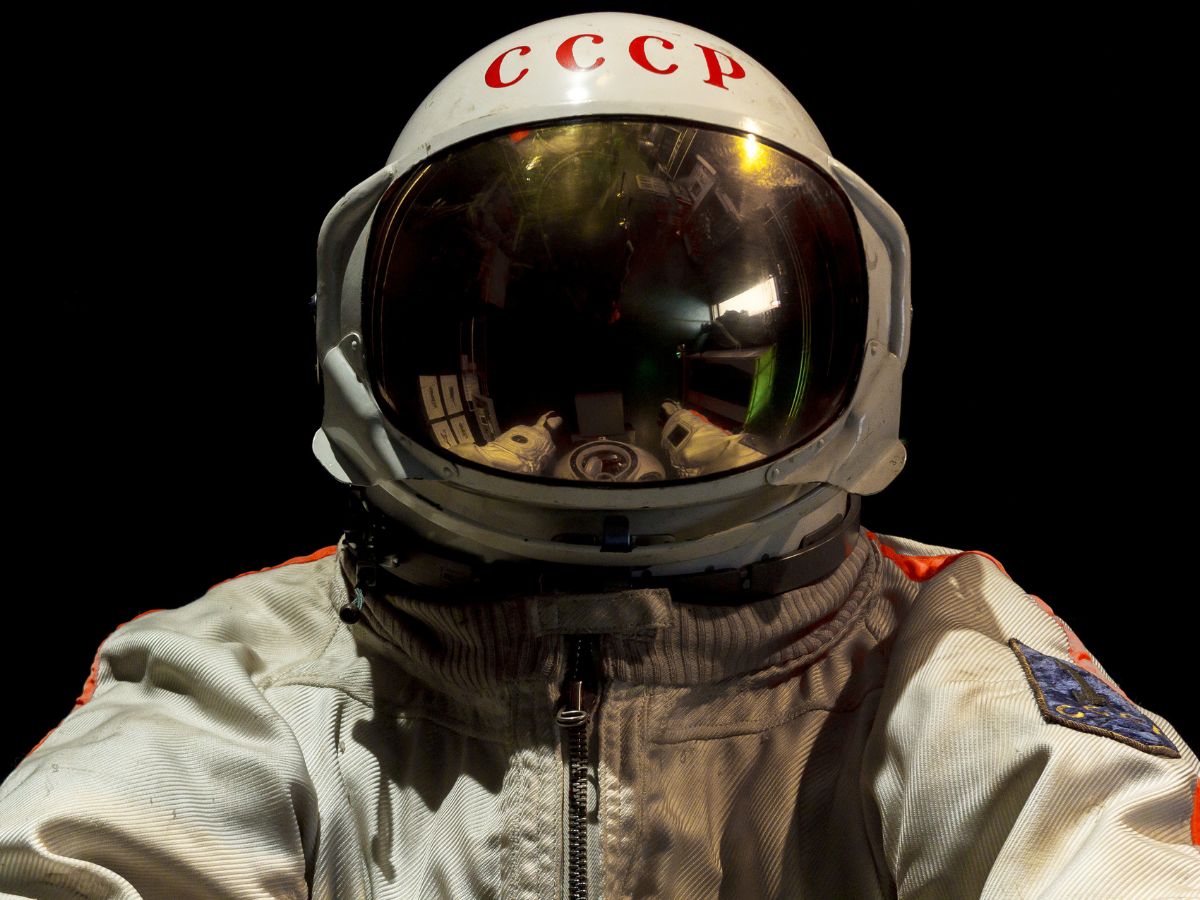Know All About Astronauts: Heroes of Space Exploration

Astronauts are often regarded as modern-day heroes, venturing into the unknown realms of space to expand human knowledge and push the boundaries of science and technology. Their courage, dedication, and rigorous training make them some of the most remarkable individuals on Earth. But what does it take to become an astronaut? What do they do in space? And what challenges do they face? This article delves into the fascinating world of astronauts, exploring their roles, training, life in space, and their contributions to humanity.
Join PSU Connect on WhatsApp now for quick updates! Click here
 Read Also : The Future of Programmers in the AI Era: Evolution, Challenges, and Opportunities
Read Also : The Future of Programmers in the AI Era: Evolution, Challenges, and Opportunities
Who is an Astronaut?
An astronaut is a person trained to travel and work in space. The term "astronaut" is derived from the Greek words "astron" (star) and "nautes" (sailor), meaning "star sailor." While the term is commonly used in the United States, other countries have their own names for space travelers. For example, Russia refers to them as "cosmonauts," and China uses the term "taikonauts."
Astronauts are employed by space agencies such as NASA (National Aeronautics and Space Administration), ESA (European Space Agency), Roscosmos (Russia), and CNSA (China National Space Administration). They participate in missions that range from conducting scientific experiments in space to repairing satellites and even preparing for future missions to the Moon and Mars.
How to Become an Astronaut
Becoming an astronaut is no easy feat. It requires a combination of education, physical fitness, and mental resilience. Here’s a step-by-step look at the process:
-
Educational Background: Most astronauts have a strong academic foundation in science, technology, engineering, or mathematics (STEM). A bachelor’s degree in a relevant field is the minimum requirement, but many astronauts hold advanced degrees (master’s or Ph.D.).
-
Professional Experience: Candidates typically need several years of professional experience in their field. Pilots, engineers, scientists, and medical professionals are often selected. Military experience, especially as a test pilot, is also highly valued.
-
Physical Fitness: Astronauts must be in excellent physical condition. They undergo rigorous medical examinations to ensure they can withstand the physical demands of space travel, such as microgravity and high G-forces during launch and re-entry.
-
Training: Once selected, astronauts undergo extensive training that can last several years. This includes:
-
Technical Training: Learning about spacecraft systems, robotics, and spacewalking (extravehicular activities or EVAs).
-
Survival Training: Preparing for emergency situations, such as water landings or wilderness survival.
-
Simulations: Practicing missions in high-fidelity simulators to prepare for real-life scenarios.
-
Teamwork and Leadership: Developing skills to work effectively in a team, often in high-pressure situations.
-
-
Selection: Space agencies conduct highly competitive selection processes, often choosing only a handful of candidates from thousands of applicants.
Life in Space: A Day in the Life of an Astronaut
Life in space is vastly different from life on Earth. Astronauts live and work in microgravity, which presents unique challenges and experiences.
-
Daily Routine: Astronauts follow a strict schedule that includes work, exercise, meals, and sleep. They typically work 12-14 hours a day, conducting experiments, maintaining the spacecraft, and communicating with mission control.
-
Food and Nutrition: Space food is specially prepared to be lightweight, nutritious, and easy to consume in microgravity. Meals are often dehydrated or thermostabilized and can include items like fruits, vegetables, pasta, and even desserts.
-
Exercise: To combat the muscle atrophy and bone density loss caused by microgravity, astronauts exercise for at least two hours a day using specialized equipment like treadmills and resistance machines.
-
Sleep: Astronauts sleep in small sleeping bags attached to the walls of their spacecraft or space station. Without gravity, they can sleep in any orientation, but they must secure themselves to avoid floating around.
-
Hygiene: Personal hygiene in space requires creativity. Astronauts use no-rinse shampoo, wet wipes, and specially designed toilets that use suction to manage waste in microgravity.
Challenges Faced by Astronauts
Astronauts face numerous physical and psychological challenges during their missions:
-
Microgravity Effects: Prolonged exposure to microgravity can lead to muscle atrophy, bone density loss, and fluid shifts in the body, which can affect vision and balance.
-
Radiation Exposure: In space, astronauts are exposed to higher levels of cosmic radiation, which can increase the risk of cancer and other health issues.
-
Isolation and Confinement: Living in a confined space with a small crew for months can lead to psychological stress, loneliness, and interpersonal conflicts.
-
Technical Risks: Space missions involve complex machinery and systems. Malfunctions or failures can pose serious risks to the crew and mission.
Contributions of Astronauts to Science and Humanity
Astronauts play a crucial role in advancing our understanding of space and improving life on Earth. Some of their key contributions include:
-
Scientific Research: Astronauts conduct experiments in microgravity that are impossible to perform on Earth. These experiments have led to breakthroughs in medicine, materials science, and biology.
-
Space Exploration: Astronauts have been instrumental in exploring the Moon, building the International Space Station (ISS), and preparing for future missions to Mars and beyond.
-
Earth Observation: From space, astronauts can monitor Earth’s climate, weather patterns, and natural disasters, providing valuable data for environmental research.
-
Inspiration: Astronauts inspire millions of people around the world, especially young students, to pursue careers in science, technology, and exploration.
Famous Astronauts and Their Achievements
Throughout history, several astronauts have made significant contributions to space exploration:
-
Yuri Gagarin: The first human to travel to space in 1961, Gagarin’s historic flight marked the beginning of human space exploration.
-
Neil Armstrong: The first person to walk on the Moon during the Apollo 11 mission in 1969, Armstrong’s famous words, “That’s one small step for man, one giant leap for mankind,” remain iconic.
-
Kalpana Chawla: The first woman of Indian origin to go to space, Chawla inspired millions with her dedication and achievements. She tragically lost her life in the Space Shuttle Columbia disaster in 2003.
-
Sunita Williams: An accomplished NASA astronaut, Williams holds the record for the longest spaceflight by a woman and has spent over 300 days in space.
The Future of Astronauts
The role of astronauts is evolving as space agencies plan ambitious missions to the Moon, Mars, and beyond. Future astronauts may:
-
Live on the Moon: NASA’s Artemis program aims to establish a sustainable human presence on the Moon by the end of the decade.
-
Travel to Mars: Missions to Mars will require astronauts to spend years in space, facing unprecedented challenges.
-
Commercial Space Travel: With the rise of private space companies like SpaceX and Blue Origin, astronauts may soon include space tourists and commercial crew members.
Read Also : How to Get Bonuses after Downloading Melbet APK?
Conclusion
Astronauts are the pioneers of space exploration, embodying humanity’s curiosity and determination to explore the unknown. Their work not only advances science and technology but also inspires future generations to dream big and reach for the stars. As we look to the future, astronauts will continue to play a vital role in unlocking the mysteries of the universe and shaping the destiny of humankind. Whether they are conducting experiments on the ISS, walking on the Moon, or preparing for Mars, astronauts remind us that the sky is not the limit—it’s just the beginning.
Read Also : Know All About Astronauts: Heroes of Space Exploration